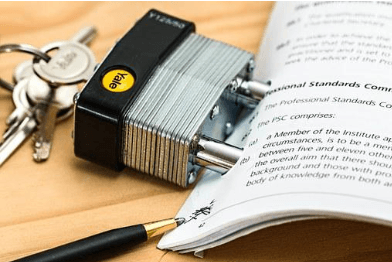Bonds are legal agreements between three parties: the obligee, the principal, and the surety. The obligee is the party protected by the bond and is typically a government agency or construction project owner. The principal is the party who will perform the work specified in the bond agreement, and the surety is the party who provides financial backing for the bond. Different types of surety bonds are designed for a specific purpose. If you need help determining which type of bond you need, don’t worry. This article will discuss the different types of surety bonds and how to know which is right for your needs.
Types Of Bonds
- Performance Bond
A performance bond is a type of surety bond used in a contract. This bond is a financial guarantee that protects the project’s owner from loss if the contractor fails to complete the work. If the contractor does not complete the project or does not meet the contract specifications, the owner can make a claim on the bond and receive compensation for damages. The amount of the bond is typically equal to the value of the contract, but it can also be a percentage of the project’s total cost.
Performance bonds are typically required for large construction projects, such as building a new highway or constructing a new office tower. However, they can also be used for smaller projects like remodeling a home or building a deck. Regardless of the size of the project, performance bonds provide essential protection for owners and help to ensure that contractors will fulfill their obligations.
- Bid bonds
A bid bond is a surety bond often required when bidding on a project. The bond would protect the project’s owner from financial loss if the contractor awarded the project fails to follow through on their bid. In essence, the bid bond ensures that the winning bidder can complete the project as specified in their bid. If the contractor does not follow through on their bid, the owner can file a claim against the bond and receive compensation for any losses incurred.
While bid bonds are only required in some situations, they are commonly used in close bidding situations where there is a risk that the winning bidder may not be able to fulfill their obligations. By requiring a bid bond, owners can be sure they will not end up with a contractor who cannot deliver on their promises.
- Payment bonds
As their name suggests, payment bonds guarantee that the principal promptly pays their subcontractors, suppliers, and employees. This type of bond protects these individuals from non-payment or late payment, ensuring they can continue working on the project without worry. Payment bonds are important to ensure that a project runs smoothly and everyone involved is paid fairly.
- License and permit bonds
Businesses that provide professional services or sell products are typically required to obtain a license or permit from the government. In some cases, businesses may also be required to post a bond as part of the licensing process. License and permit bonds are designed to protect consumers against losses arising from unethical or incompetent business practices. For example, if a licensed contractor fails to complete a job, the consumer can claim the bond to recover damages. License and permit bonds are also often used to ensure that businesses comply with regulations and pay any fines or fees that may be assessed against them. As a result, these bonds play an essential role in protecting the public and ensuring that businesses operate fairly and ethically.
- Court bonds
Court bonds are a type of surety bond required in certain legal proceedings to protect the court and prevailing party from costs associated with court proceedings. Litigants usually require court bonds to overturn an injunction, file an appeal, or secure a writ. In some cases, courts may also require court bonds to issue a restraining order or stay the execution of a judgment. Depending on the type of bond, the obligee may be the court itself, another party to the litigation, or even a third party such as a witness. The surety provides the bond to guarantee that the obligee will be compensated if the principal fails to meet their obligations under the bond agreement.
How To Know Which One You Need
There are many types of surety bonds, each serving a specific purpose. When determining which type of bond you need, it’s important to consider the specifics of your project or business. To help you choose the proper bond, here are some questions to ask yourself:
- What is the purpose of the bond?
- What is the value of the project or contract?
- What is the length of the project or contract?
- What is the risk involved in the project or contract?
- Are there any special conditions or requirements associated with the project or contract?
Answering these questions will help you narrow down your options and choose the type of bond that’s right for your needs.
There are many types of surety bonds, each serving a different purpose. When deciding which type of bond you need, it is important to consider the risks involved in your business or project. Surety bonds are a vital tool to protect businesses and consumers, so make sure you choose the right one for your needs.


